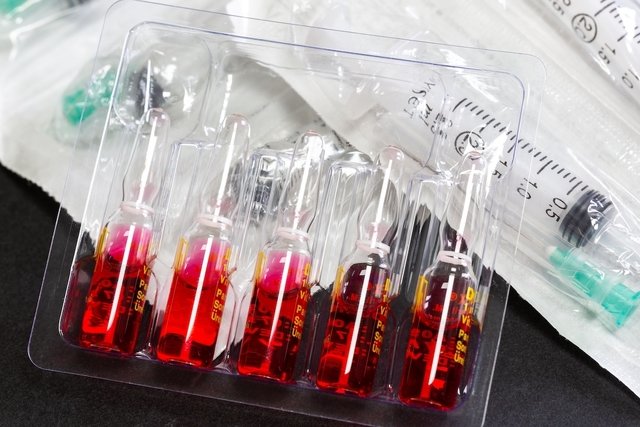A B12 injection is made-up of artificial B12 vitamin and is used to treat low B12 levels in the body. B12 levels can become low as a result of inadequate nutrition, decreased absorption of this vitamin in the intestines, stomach problems, infections or cancer.
Persistently low B12 levels can cause pernicious anemia, stomach problems or nerve damage. This vitamin is important for the growth and proliferation of cells, blood cell formation, protein formation, and nervous system maintenance.
This medication can be obtained in pharmacies as the generic cyanocobalamin infection with a prescription. It is injected intramuscularly by a trained health care professional.

What it is for
B12 injections are prescribed for the treatment of many illnesses like:
- Pernicious anemia
- Vitamin B12 deficiency
- Intense nerve pain or inflammation
- Intense muscular pain
- Sciatica
- Lumbar osteoarthritis
- Arthritis
- Diabetic neuropathy
Vitamin B12 injections can also be prescribed in some cases of a herniated disc or narrowing of the spinal cord near the neck, especially when the pain starts in the neck and radiates to an arm.
Your doctor may include B12 infections as part of the treatment for conditions that are associated with poor nutrition, malabsorption of vitamin B12 from the intestines or deficiency of this vitamin due to obesity, vegetarian diets, or macrobiotic diets.
Vitamin B12 injections should always be prescribed by a doctor, who can advise the dose, frequency of application and treatment duration, all which vary depending on the condition being treated. Learn more about what can cause a B12 deficiency and how this can present.
How to take it
B12 injections should be administered deep into a gluteal muscle by a healthcare professional. They should always be prescribed by a general practitioner or physician specialist.
The dose of vitamin B12 injection for adults may vary depending on the problem to be treated:
- Treatment of mild nerve pain: the initial dose is 5,000 IU until pain resolves
- Treatment of intense nerve pain: the initial dose can be increased to 15,000 IU per day and reduced by the doctor as pain resolves
- Treatment of pernicious anemia: the dose can vary from 100 to 1000 IU per day and the treatment time varies from person to person. Duration of treatment is typically determined by the doctor through an evaluation of blood test results.
Generally, B12 injections are administered every 3 to 7 days, in treatment cycles of 3 weeks or more, as recommended by the doctor.
Also recommended: Top 16 Vitamin B12 Foods (& Recommended Daily Dose) tuasaude.com/en/vitamin-b12-foodsPossible side effects
Some side effects can occur following the first B12 injection, or they can emerge after several doses. The most common ones are itchiness and diarrhea.
With ongoing treatment, other, more serious side effects can emerge. These should be communicated to the prescriber. Other side effects that can occur include:
- Excessive sweat production
- Rapid weight gain
- Pain when breathing
- Shortness of breath when lying down
- Anxiety
- Increased or irregular heart rate
- Numbness, tingling or muscular weakness
- Increased thirst
- Urinary frequency
B12 injections can also cause allergy symptoms immediately after administration, like difficulty breathing, a swollen throat, mouth, or swelling of the mouth, tongue or face. Therefore, vitamin B12 should only be injected by a health care professional who is prepared to provide first aid immediately.
Contraindications for use
B12 injections should not be administered to children or pregnant or breastfeeding women. They are also contraindicated or people with vision problems, Leber’s disease, kidney failure, liver failure, folic acid deficiency or any type of systemic infection.
This medication is also not advised for people with an allergy to any of the components in the solution.
